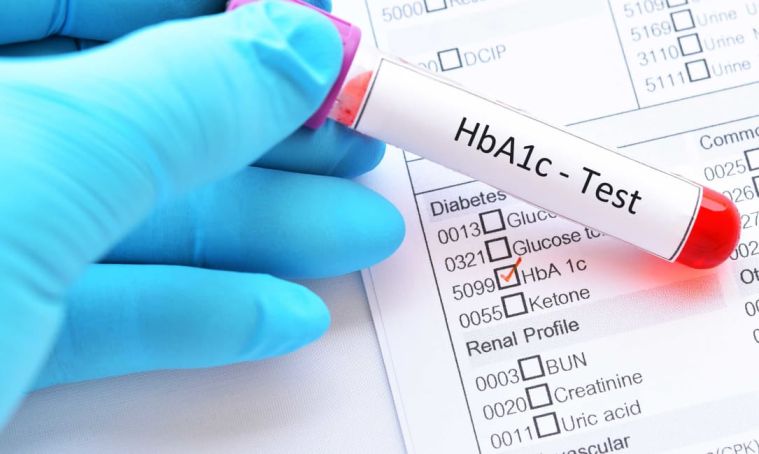Contents
Hyperglycemia- When the Blood Sugar Level Gets High
High blood sugar (hyperglycemia) affects people who have diabetes. Hyperglycemia refers to a high level of sugar, glucose in the blood when the insulin in your body is not able to produce energy. Insulin is a hormone in the pancreas (a gland located just behind the stomach) that absorbs glucose into cells to use for the production of energy.
Type I diabetes occurs when the body doesn’t produce enough insulin
Type II diabetes occurs when the body is not able to use insulin effectively. So eventually, glucose just flows in the body.
Regular blood sugar test is crucial for people who’re suffering from diabetes Type-1 and Type-2 because many a time, people don’t feel the initial symptoms of high blood sugar.
High blood sugar is a leading indicator of diabetes, and if a person does not manage to control sugar levels, then there’s a complication called “Diabetic ketoacidosis” (DKA). If a person doesn’t get a proper treatment of ketoacidosis they can eventually fall into a diabetic coma, which is a major complication of diabetes.

Symptoms Of Hyperglycemia
There are some symptoms of high blood sugar or hyperglycemia which include: excessive thirst, excessive urination, blurry vision, fatigue, etc.
If someone feels any of the symptoms given above, then it becomes mandatory to check the blood sugar level. Untreated high blood sugar can lead to chronic complications such as eye, kidney, heart diseases, or nerve damage. The symptoms can gradually develop severe after passing days or weeks if untreated.
Causes Of Hyperglycemia
Some conditions can contribute to hyperglycemia that is given below-
1) High glucose meal
Human beings blood sugar levels increase after the in-take of meal that consists of high carbohydrates that have high glucose in it.
2) Lack of Fitness
If someone’s less into physical activities such as running, jogging, etc. Then there’re chances of you being in hyperglycemia.
3) Infections
If someone’s caught from an infectious disease or gets ill, then your blood sugar level can increase than normal.
4) Stress
With this lifestyle, the stress level of the brain gets high on minor issues. Sometimes stress can also cause hyperglycemia.
5) Medication issues
If you’re not following the right medication for lowering your glucose levels, then it can become a major cause of hyperglycemia.
Complications Of Hyperglycemia
Keeping your blood sugar at a healthy range will prevent you from a lot of complications.
Long-term use of complications of untreated hyperglycemia are as below-
- Nerve damage (neuropathy)- If the blood sugar is consistently at its peak, then it can raise many complications related to nerves such as :
- Peripheral neuropathy: In this, it will damage feet and hands suffering from numbness, weakness, or tingling.
- Autonomic neuropathy: The high blood level will affect automated processes such as bladder control, sexual function, and digestion.
- Other types of neuropathy: Continuous increase in the blood sugar level may increase femoral, thoracic.
- Kidney damage (diabetic nephropathy) or kidney failure
- Eye Complications: Damage to the blood vessels of the retina (diabetic retinopathy), potentially leading to blindness. Diabetes consistently increases the blood pressure inside the eyes which raises the risk of glaucoma by 40% and cataracts by 60%.
- Skin problems: People with prolonged hyperglycemia might increase prone to bacterial and fungal infections such as bolis, jock itch, athlete fort, etc. People can cause skin conditions that can cause spots and lesions to develop, which can cause pain and itching.
- Bone and joint problems
- Teeth and gum infections
Treatment
If the hyperglycemia, i.e. blood sugar is above 126mg/dl or 7.0mmol/dl while you are on the empty stomach, or above 200 mg/dl or 11.1 mmol/L after two hours of eating, then at this stage, it is important for you to control the blood sugar levels. Testing the hyperglycemia level is a key way to know at what stage you are in.
The treatment of the individual depends on person-to-person, case-to-case, and also on the severity. Managing diabetes to control the blood sugar level is just like running a life-long marathon and can’t be achieved in a single day.
Exercise: Physical activity can lower the blood sugar level in the body. But if a person in severe hyperglycemia finds ketones in the urine, then they should avoid doing exercise.
Track of the diet- Eating fewer carbohydrates during the meal-time and snacking less and also focus on food which is low-sugar food. Keep a track of the glucose level, the body can handle.
Replacement of medication: The doctor will recommend medication and see if it’s working for you or not. Or he/she will alter the timings, and the types of medication and insulin a person can intake.
The doctor will look at self-monitored results, identify issues and help individuals to find a way to prevent the spike of high sugar levels.
Prevention of Hyperglycemia
Good diabetes management and monitoring blood – sugar level is the only effective way of preventing hyperglycemia.
Test regularly – Test and record the blood sugar on daily basis and make a note of it in a diary, so that your doctor can track you with every appointment.
Manage Carbs – Always keep a track of carbohydrates in the diet, always take medication, and being consistent about the amount and timings of the meals and snacks.
Wear Fitness bands – Medical bracelets or necklaces can alert emergency responders to diabetes.
When To Seek Doctor Advice
Emergency medical assistance: If you’re sick for a long time, and the food and fluids are down; if the blood glucose level is continuously above 240 mg/dl; and if there’s a presence of ketones in the urine.
Appointment with the doctor: If you’re experiencing vomiting or diarrhea; and the fever lasts in the body for more than 24 hours; the blood glucose of the body is higher than 240mg/dl even after taking diabetic medication; if you’re facing issues to maintain the glucose level in the body.
Haemoglobin A1C test
During an appointment, the doctor will ask you to conduct a Haemoglobin A1C test. In this test, the average blood sugar level is tested for the past 2-3 months. It works in measuring the percentage of blood sugar attached to blood sugar in oxygen-carrying protein present in red blood cells (hemoglobin).

The A1C level of 7% means that the treatment plan is working well and is in the target zone, If the percentage gets more than 7% the blood sugar level will be above than a normal range, and in this case, the doctor will ask you to bring small changes in the treatment plan.
A Word From MantraCare
Do you want to get rid of diabetes? Join our online diabetes consultation program and reverse your Diabetes naturally through lifestyle changes such as a Personalized Diet plan, Exercise, dieticians, and health coaches.


